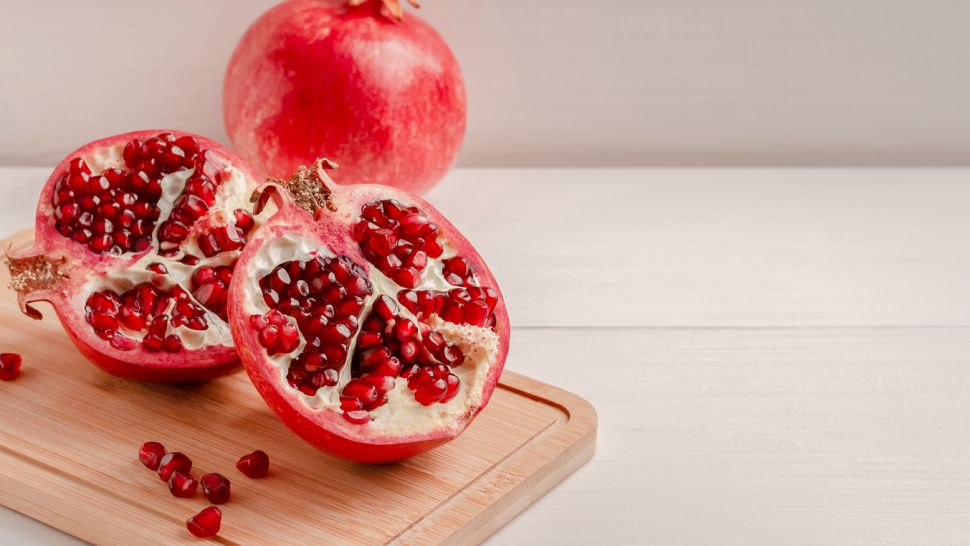The pomegranate is a sweet, tart fruit with a thick, red skin. Although the skin is not edible, the pomegranate contains hundreds of juicy seeds that can be eaten on their own or sprinkled over salads, oatmeal, hummus and other dishes.
The word pomegranate comes from the Latin phrase pomum grantum, which translates to "many-seeded apple." It's aptly named because beneath its tough skin, pomegranates are divided into several chambers, each filled with hundreds of red seeds. Botanically, these seeds are called arils. The aril is the fleshy, transparent tissue that covers the pomegranate seed.
What is in a pomegranate?
Pomegranate in its whole form is low in calories and fat and high in fiber, vitamins and minerals. It should be borne in mind that pomegranate juice does not contain the same amounts of fiber and vitamin C.
- Calories: 234;
- Protein: 4.7 grams;
- Fat: 3.3 grams;
- Carbohydrates: 52 grams;
- Fiber: 11.3 grams;
- Vitamin C: 32% of the daily value;
- Folic acid: 27% of the daily value;
- Magnesium: 8% of the daily value;
- Phosphorus: 8% of the daily value;
- Potassium: 13% of the daily value.
Health benefits
Pomegranate can have up to three times more antioxidants than green tea or red wine. Antioxidants protect cells from damage caused by free radicals and reduce inflammation.
1. Better heart health
Studies show that pomegranate can help protect the heart in many ways, such as lowering blood pressure as well as blood sugar levels. Pomegranates contain polyphenolic compounds called punicalagins or ellagitannins . These antioxidants help prevent thickening of artery walls and reduce cholesterol and plaque build-up. Pomegranate juice also has high amounts of plant pigments called anthocyanins and anthoxanthins , which support good heart health.
Atherosclerosis, the buildup of cholesterol and fat in the arteries, is a common cause of heart disease. Pomegranate juice can help reduce LDL cholesterol , or the "bad" cholesterol that clogs arteries. It can also raise HDL cholesterol, or "good" cholesterol, which reduces the risk of stroke and heart attack.
2. May have antimicrobial properties
Pomegranates contain compounds that help fight potentially harmful bacteria, fungi, and yeast—especially the germs in the mouth that can cause bad breath and tooth decay.
3. It has the potential to prevent cancer
Pomegranate is rich in antioxidants and flavonoids, both of which help prevent cell damage from free radicals. In some early studies, pomegranates have shown potential to prevent prostate, breast, lung, and colon cancer. It may slow tumor growth and spread and reduce inflammation, although further research is needed.
References:
https://www.healthline.com/nutrition/12-proven-benefits-of-pomegranate#3.-May-help-keep-inflammation-at-bay
https://health.clevelandclinic.org/pomegranate-benefits/
https://www.webmd.com/diet/health-benefits-pomegranates

No comments:
Post a Comment